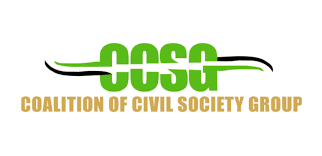A coalition of Civil Society Organisations (CSOs) has urged Nigerians and the international community to demand justice for the Niger Delta in an ongoing legal case against Shell Nigeria Exploration and Production Company.
Speaking at a press conference in Abuja on Monday, the coalition called on all stakeholders to oppose Shell’s planned divestment from its offshore assets, describing the move as an attempt to evade responsibility and accountability.
In his address, Executive Director of the Health of Mother Earth Foundation, Mr Nnimmo Bassey, described the Niger Delta as a “brutalised sacrificial zone of fossil fuel colonialism.”
According to him, for over seventy years, transnational oil companies, led by Shell, have extracted resources from the region while leaving behind environmental devastation and broken communities.
“We call on the Nigerian state and the international community to reject Shell’s attempts to escape justice and to affirm that environmental crimes must be met with uncompromising accountability,” he said.
Chairman of the Bayelsa Council of Traditional Rulers, King Bubaraye Dakolo, revealed that a case had been filed at the Federal High Court in Yenagoa against Shell’s divestment plan.
Dakolo, who is also the traditional ruler of Ekpetiama Kingdom, emphasised that the legal action goes beyond his community, representing the wider struggle for justice across the Niger Delta.
“Allow me to speak from personal experience. The gas flares from the Gbarain Gas Plant blaze day and night just outside my window,” he said.
“I live with the constant light that has obliterated the night, the noise, and the poison in the air. My people drink from polluted streams and farmlands laced with crude. Our children breathe soot. Our people now suffer from cancers and unexplained diseases that were unknown before oil came,” he added.
He described the Niger Delta people as “collateral damage in the ruthless pursuit of oil wealth,” urging Nigerians and international observers to follow the case closely and support their demand for justice.
Dr Prince Edegbuo, Programme Manager at the Social Development Integrated Centre, echoed these sentiments, stating that the Ekpetiama Kingdom’s experience reflected the broader suffering of frontline communities in the region.
He said the legal case against Shell presented an opportunity to shift the national conversation toward accountability and environmental redress.
“We must redefine what energy transition means for those who have borne the costs of extraction,” he said.
“Social Action Nigeria is proud to stand with the Ekpetiama people and other impacted communities. We support their legal challenge and broader struggle for recognition and restitution,” he added.
He urged the judiciary, civil society, and the Nigerian public to recognise the case as a pivotal moment for environmental justice and national accountability.
(NAN)


